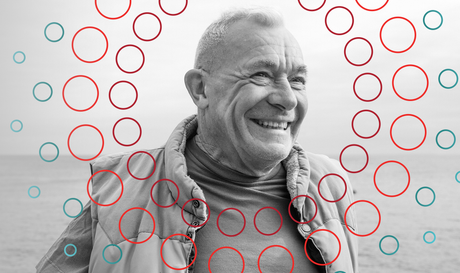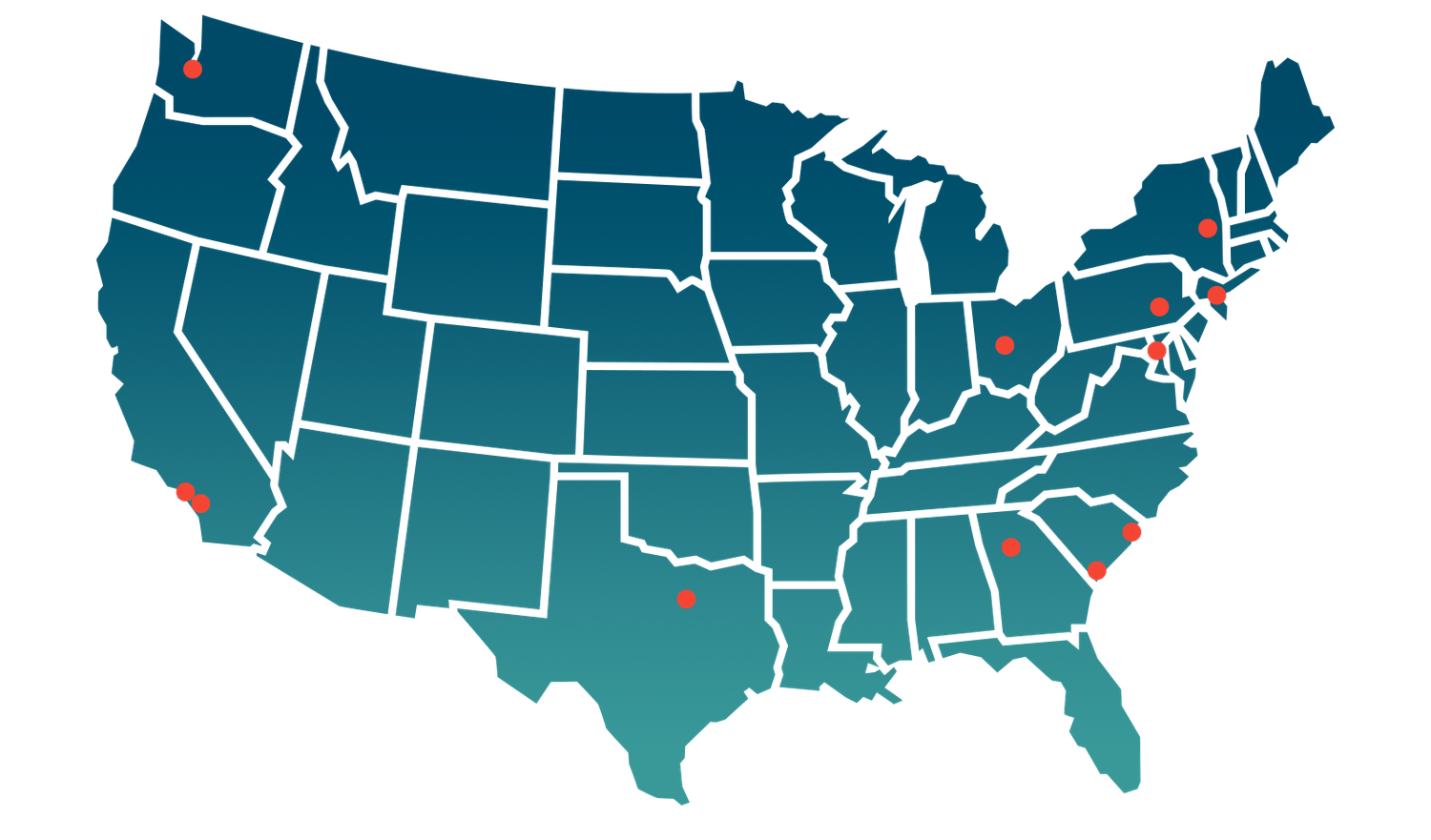Find out how you can help researchers learn about upper tract urothelial cancer (UTUC) and a possible UTUC therapy in the ENLIGHTED clinical trial (also known as clinical research study).
The ENLIGHTED study is a clinical trial (research study) for people with upper tract urothelial cancer (UTUC) that is not invasive or aggressive and spreading slowly (low grade cancer). The study is testing the safety of the investigational study therapy and how effective it is at targeting low grade UTUC tumors.

Clinical Trial Information
The ENLIGHTED study is a clinical trial (research study) for people with upper tract urothelial cancer (UTUC) that is not invasive or aggressive and spreading slowly (low grade cancer). The study is testing the safety of the investigational study therapy and how effective it is at targeting low grade UTUC tumors.
What is the purpose of the ENLIGHTED study?
The primary purpose of the study is to learn more about the effects and safety of the investigational study therapy targeting UTUC tumors. Investigational means that the study therapy has not been approved for use for UTUC, except in clinical research studies. What we learn from this study may help scientists and doctors develop the study therapy as a possible UTUC therapy.
- US: visit clinicaltrials.gov (NCT number NCT04620239)
- EU: visit clinicaltrialsregister.eu (EudraCT number 2020-004494-41)

See If You Are Eligible
If you meet these requirements, you may be eligible to participate.
You're 18 years of age or older
You have a new or recurring low grade UTUC
A biopsy and cytology confirmed disease (up to 2 biopsy locations with low grade tumors)
Study Center Locations

Find a study center near you.
Memorial Sloan Kettering Cancer Center, New York, NY 10021
646-422-4781
Carolina Urologic Research Center
Myrtle Beach, SC 29572
843-449-1010 Ext. 5144
Albany Medical College
Albany, NY 12208
518-262-8579
Penn State Health Milton S. Hershey Medical Center,
Hershey, PA
717-531-5930
urologyresearch@pennstatehealth.psu.edu
University of Washington
Seattle, WA
206-598-4294
Johns Hopkins Hospital/The Sidney Kimmel Comprehensive Cancer Center Baltimore, MD
410-502-0017
USC/Norris Comprehensive Cancer Center, Los Angeles, CA
323-865-0702
djaladat@usc.edu
Emory University Hospital
Atlanta, GA
404-778-7081
michael.paul.moulton@emory.edu
Hollings Cancer Center at Medical University of South Carolina (MUSC)
843-792-2306
University of California - Irvine Medical Center
714-456-6801
The Ohio State University (OSU) - The James Outpatient Care West Campus
614-293-6801
GUResearchCoordinators@osumc.edu
University of Texas Southwestern Medical Center
Vitaly.Margulis@UTSouthwestern.edu
Frequently Asked Questions
For Healthcare Professionals
NOTE: Information on this webpage is applicable to Healthcare Professionals (HCPs) only.
The ENLIGHTED study is sponsored by Steba biotech. It is a Phase 3 clinical research study to explore the safety, effectiveness, and durability of padeliporfin vascular targeted photodynamic (VTP) therapy for targeting low grade upper tract urothelial cancer (UTUC) tumors. This is a global study being conducted the United States, France, Germany, Austria, Italy, Spain and Israel. Other countries may also participate.
Primary study objective
To demonstrate the efficacy and durability of effect following padeliporfin vascular targeted photodynamic (VTP) therapy on low grade UTUC tumors in the calyces, renal pelvis, and ureter.
Study Therapy
The investigational product, padeliporfin VTP, is a combination product of a photoactive drug (padeliporfin) administered intravenously and a device (VTP), which is part of a laser light delivery system. After drug administration, the light system delivers the light to the target lesion(s) in the upper tract urothelium.
Based on the data available to date, padeliporfin VTP appears to be well-tolerated at the dose range tested, and to effectively ablate targeted tumors in the majority of participants.
Study Overview
Study participation could last about 5 years and 4 months, depending on how participants respond to the investigational study therapy.
Screening (0-4 weeks)
- This phase will confirm participant eligibility with assessments including ureteroscopy, biopsy, and cytology.
Induction Treatment Phase (1-3 months)
- Participants undergo anesthesia and receive the study therapy 1 to 3 times, about 4 weeks apart. If a participant does not achieve Complete Response (CR)* after 3 treatments (or if their disease has progressed as defined in the protocol), the participant will be discontinued from the Treatment Phases and enter the Long-term Follow-up Phase.
Maintenance Treatment Phase (12 months)
- Participants who achieve CR* from Induction Treatment Phase will be followed for 12 months. Repeated maintenance with the study therapy will be provided for participants as determined by the study doctor.
Long-term Follow-up Phase (48 months)
- Patients who achieve CR and then enter the maintenance treatment phase and who have a CR after the end of maintenance treatment phase will enter the Long-term Follow-up Phase and will be followed up for up to an additional 48 months in the Long-term Follow-up Phase or until recurrence, progression, death or loss to follow up, to document safety and ongoing response.
- Patients discontinued from the treatment phases and who have received at least one padeliporfin VTP treatment will be followed up for additional 12 months in the long-term follow-up phase of the study from last VTP treatment.
*Note: Patient undergoing extirpative surgery of any part of the ipsilateral kidney or ureter for indications related to urothelial cancer will be considered as no longer having CR.

